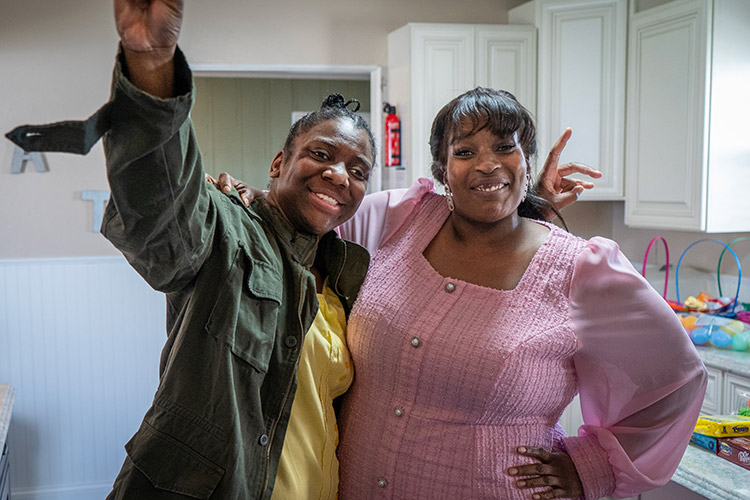Across the country, millions of parents and family members provide lifelong care for loved ones with developmental disabilities. It is a role shaped by love and built on years of shared routines, understandings, and unwavering commitment.
As caregivers grow older, many begin to face a difficult and deeply personal question:
Who will care for my loved one when I no longer can?
This concern weighs heavily on the minds of families. According to Medicaid, nearly one million households in the United States include adults with a developmental disability who live with and are supported by an aging caregiver(1). Most of these families have not only provided day-to-day care for decades but also have become the foundation of their loved one’s entire support system.
Caregivers are not just managing schedules or providing meals. They are nurturing relationships, offering emotional support, and helping their loved one stay connected to the world around them. And while the role is often filled with purpose and joy, it can also come with uncertainty, especially when thinking about the future.
Planning with Purpose
Nearly three in four people with a developmental disability live in the family home, often relying on their parents or siblings for both practical support and a sense of belonging(2). As those caregivers age, they begin to consider how to ensure continuity of care and connection.
Jasmine’s story is one example. Raised by her great-aunt Hannah, Jasmine had a loving, stable home all her life. But Hannah also knew she needed to think ahead. She wanted Jasmine to be surrounded by people who would care for her in the same warmth and understanding.
Today, Jasmine lives in a shared living home where she is fully embraced. In this supportive environment, she’s building greater independence and thriving in a place where she feels safe, respected, and included.
Looking Ahead Together
Conversations about the future are never easy. But they can be filled with hope. Planning for transitions (whether that means exploring housing options, building support networks, or simply having open conversations) helps ensure that people with developmental disabilities continue to live full and connected lives even as their caregivers step back.
This is not about stepping away. It is about stepping forward together.
No family should have to face these questions alone. It takes a community of support to ensure every person is cared for and empowered to thrive, even as situations change.
If you are beginning to think about what comes next for your loved one, we invite you to learn more about residential options and long-term supports by visiting our What We Do page.
- Supporting Adults with Intellectual and Developmental Disabilities and Their Aging Caregivers; Medicaid.gov
- Easterseals Living with Disability Study; 2016

